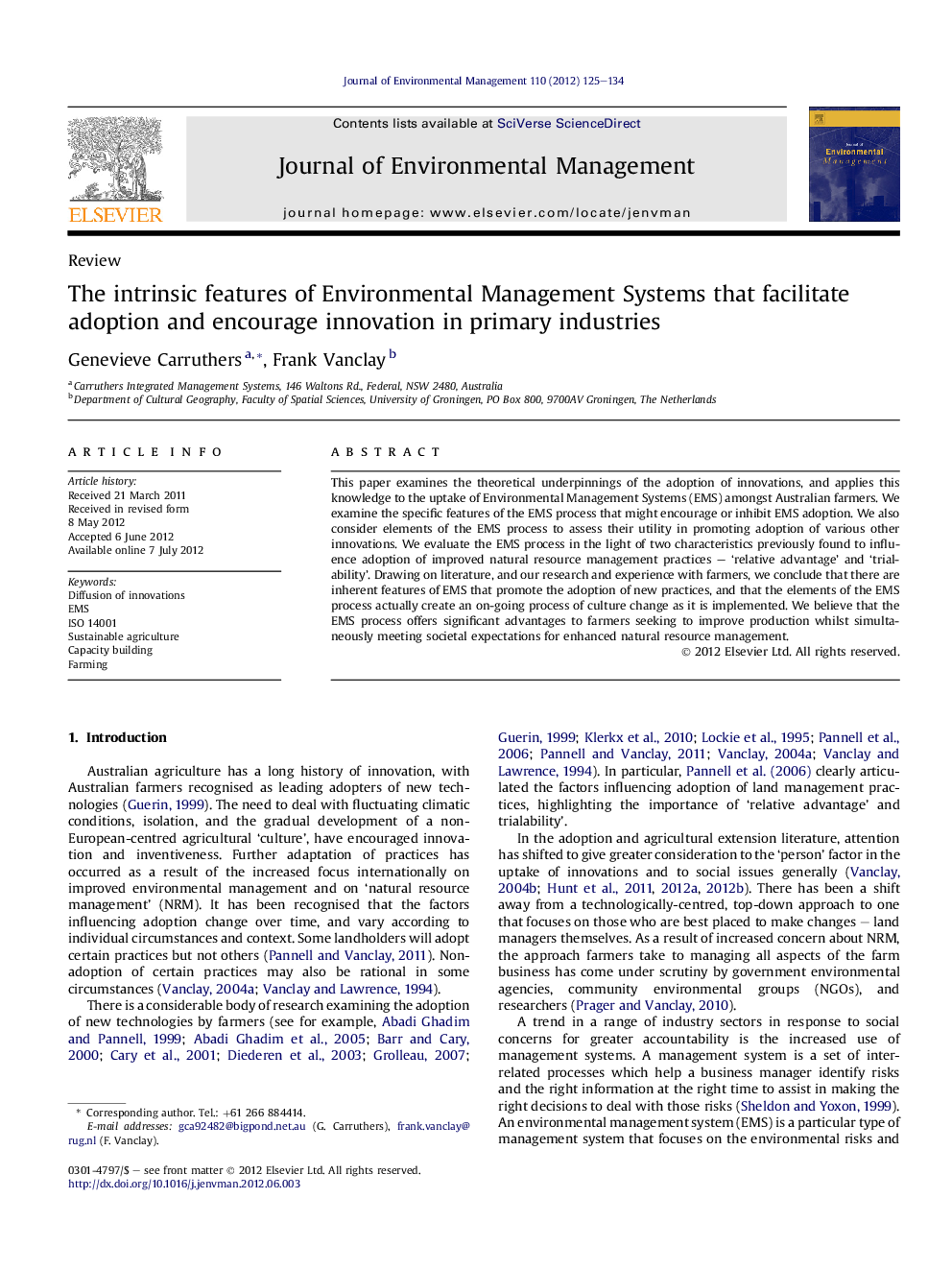| Article ID | Journal | Published Year | Pages | File Type |
|---|---|---|---|---|
| 1056513 | Journal of Environmental Management | 2012 | 10 Pages |
This paper examines the theoretical underpinnings of the adoption of innovations, and applies this knowledge to the uptake of Environmental Management Systems (EMS) amongst Australian farmers. We examine the specific features of the EMS process that might encourage or inhibit EMS adoption. We also consider elements of the EMS process to assess their utility in promoting adoption of various other innovations. We evaluate the EMS process in the light of two characteristics previously found to influence adoption of improved natural resource management practices – ‘relative advantage’ and ‘trialability’. Drawing on literature, and our research and experience with farmers, we conclude that there are inherent features of EMS that promote the adoption of new practices, and that the elements of the EMS process actually create an on-going process of culture change as it is implemented. We believe that the EMS process offers significant advantages to farmers seeking to improve production whilst simultaneously meeting societal expectations for enhanced natural resource management.
► An Environmental Management System provides significant advantages to farmers. ► Advantages include improved production and the ability to meet societal expectations. ► EMS promotes the adoption of new practices and on-going culture change. ► The EMS process adjusts to local context and uses adaptive learning processes. ► EMS is cost-effective and efficient way for farmers to address sustainability.
